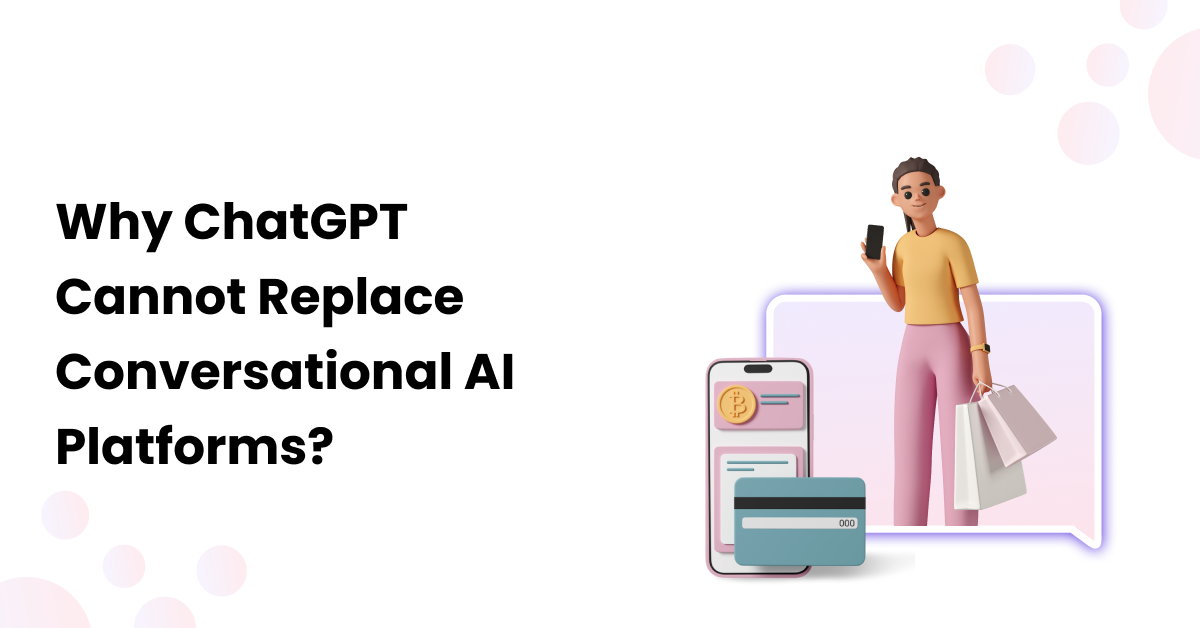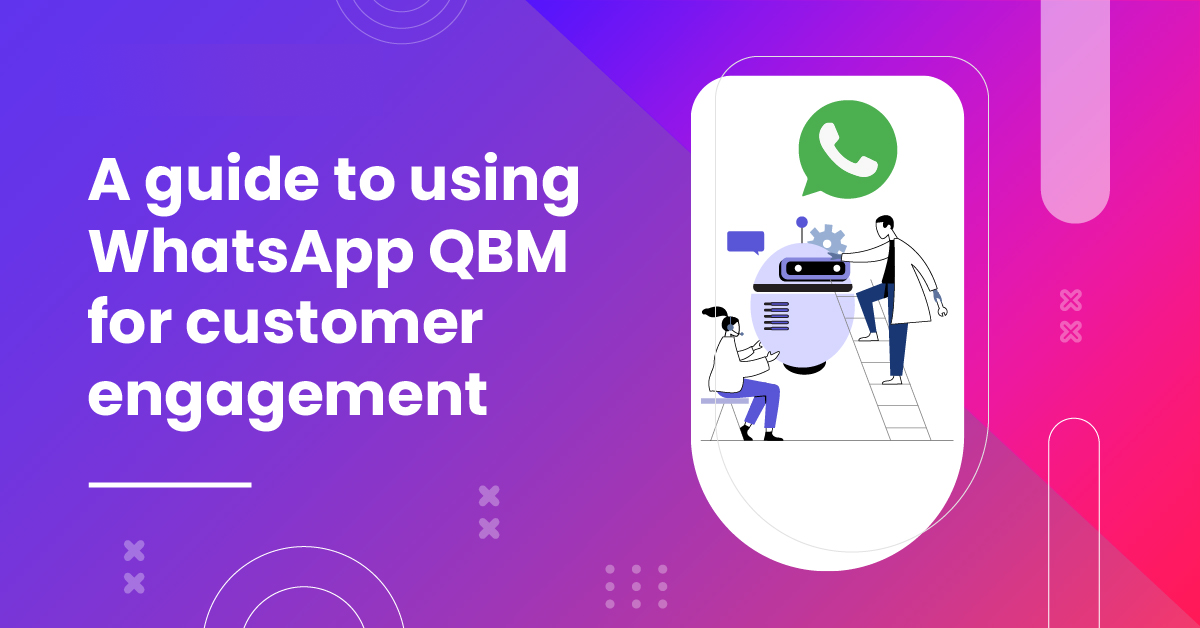
Why ChatGPT Cannot Replace Conversational AI Platforms?
ChatGPT (Conversational Generative Pre-trained Transformer) is a newly released open-source conversational AI platform. It has been praised for its ability to generate natural language responses to user inputs, and many have hailed it as the next step in creating more human-like conversations. However, despite its promise, certain limitations still prevent it from being a viable replacement for other conversational AI platforms. Let’s explore these limitations and how they can be addressed.
How is ChatGPT different from Conversational AI? As an AI language model, ChatGPT can provide conversational capabilities that can be helpful for certain use cases, such as answering general questions or providing basic support. However, it is not designed to replace enterprise conversational AI platforms for several reasons: Fine-tuning and customization: Enterprise conversational AI platforms can be customized to meet specific business needs and integrate with their existing systems of records, providing a more tailored solution. ChatGPT, on the other hand, is a general-purpose AI language model and may not be able to meet the specific needs of every business. Security and compliance: Enterprise conversational AI platforms often have security and compliance features built-in, ensuring that sensitive data is protected and regulatory requirements are met. ChatGPT is not specifically designed for enterprise-level security and compliance requirements. Integrations: Enterprise conversational AI platforms can integrate with other systems and applications, allowing for a more seamless experience for users. ChatGPT does not have the same level of integration capabilities. Support and maintenance: Enterprise conversational AI platforms often provide support and maintenance services to ensure that the system is running smoothly and to address any issues that arise. ChatGPT does not provide this level of support and maintenance. Scalability: Enterprise conversational AI platforms can be scaled to handle large volumes of user interactions, while ChatGPT may not be able to handle the same level of scalability. In summary, while ChatGPT can provide conversational capabilities for certain use cases, it is not designed to replace enterprise conversational AI platforms, which offer greater customization, security, integration, support, maintenance, and scalability capabilities to meet the needs of large businesses.


